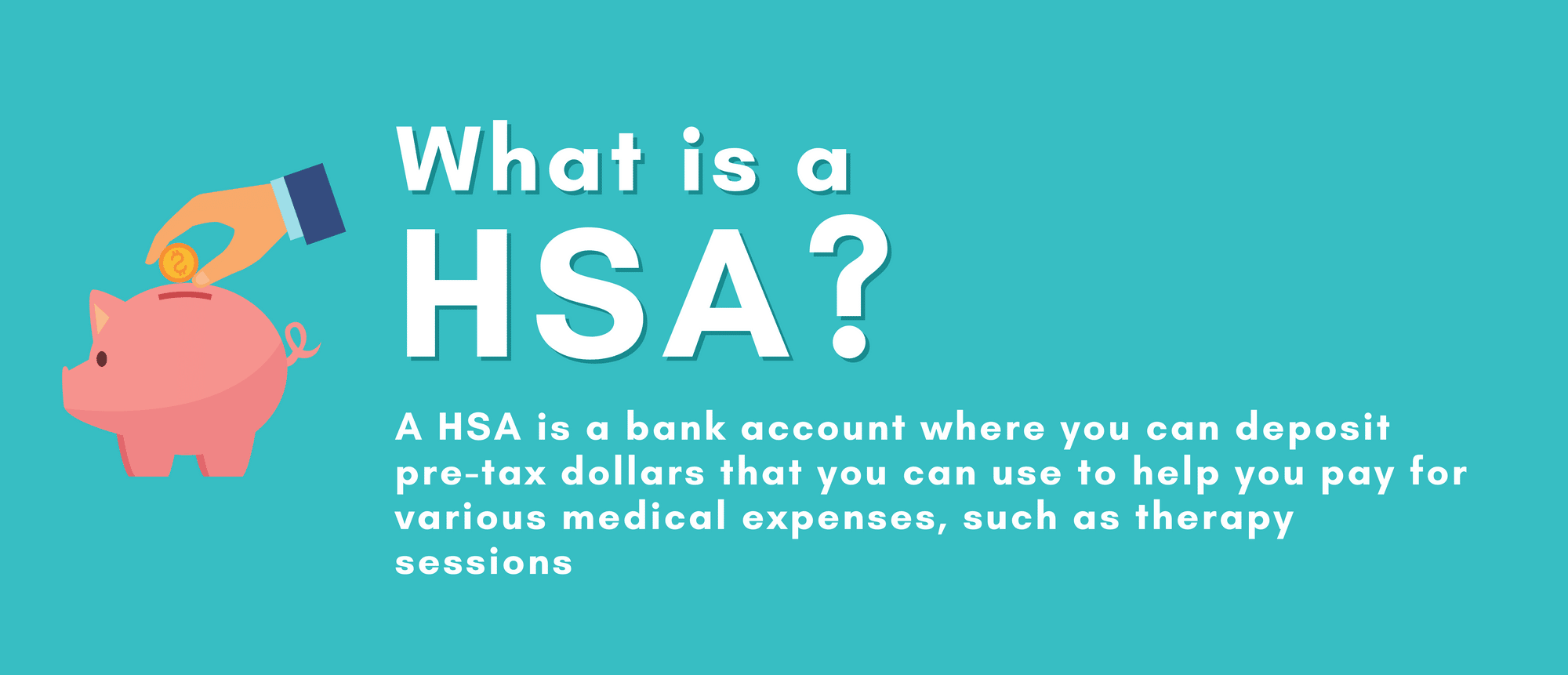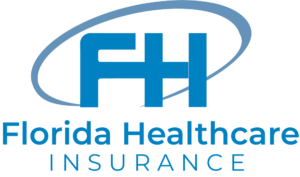
Health Savings Accounts (HSAs) are a type of tax-advantaged medical savings account that can be used in conjunction with certain high-deductible health plans (HDHPs). These accounts are becoming increasingly popular as more people become aware of the benefits they offer. If you are considering a high-deductible health plan, it is important to understand what an HSA is and how it works.
At our health insurance agency, we offer a variety of plans that are compatible with HSAs. We believe that these accounts can help our clients save money on healthcare expenses and provide them with greater control over their healthcare spending.
In this blog post, we will provide a comprehensive overview of Health Savings Account, including how they work, their benefits, and how they can be used in conjunction with high-deductible health plans.
How Do HSA’s work?
A Health Savings Account is a type of savings account that is specifically designed to help individuals pay for qualified medical expenses. These accounts are available to anyone who is enrolled in a qualified high-deductible health plan. Contributions to a HSA can be made by either the individual or their employer, and these contributions are tax-deductible.
This contributes to lowering your income tax and helping to pay medical expenses. A Health Savings Account can be opened by financial institutions or a HSA Provider such as HSABank.com
One of the biggest benefits of an HSA is that the funds in the account can be used to pay for qualified medical expenses tax-free. This means that the money in the account can be used to pay for expenses such as deductibles, copayments, and prescription drugs without being subject to federal income tax.
Additionally, any interest or investment earnings in the account are also tax-free.
It is important to note that HSAs have annual contribution limits. For 2023, the contribution limit for an individual with self-only coverage is $3,750, and the limit for individuals with family coverage is $7,500. Additionally, individuals who are 55 or older can make catch-up contributions of up to $1,000 per year.

Benefits of HSA’s
HSAs offer several benefits to individuals who are enrolled in a high-deductible health plan. One of the primary benefits of a Health Savings Account is that it allows individuals to save money on healthcare expenses.
By contributing to an HSA, individuals can build up a savings account that can be used to pay for qualified medical expenses tax-free. This can be particularly useful for individuals who have high healthcare expenses or who are concerned about meeting their deductible.
Another benefit of HSAs is that they provide individuals with greater control over their healthcare spending. Because the funds in an HSA can be used to pay for a wide range of qualified medical expenses, individuals can choose to spend their money on the healthcare services and treatments that they feel are most important.
Additionally, because the funds in an HSA are owned by the individual, they can be rolled over from year to year, allowing individuals to save for future healthcare expenses.
There are several benefits to using a Health Savings Account to save money for healthcare expenses, including:
- Tax Benefits: As mentioned earlier, contributions to an HSA are tax-free, which can result in significant tax savings. In addition, the money in an HSA grows tax-free, which means you do not have to pay taxes on any interest or investment gains earned by the account. When you withdraw funds from your HSA to pay for qualified medical expenses, the money is also tax-free.
- Flexibility: HSAs offer more flexibility than traditional health insurance plans. Because you are responsible for paying more of your healthcare costs out of pocket, you have more control over how you spend your healthcare dollars. For example, you can use HSA funds to pay for a variety of healthcare expenses, including deductibles, copayments, and prescription medications. In addition, you can use HSA funds to pay for non-medical expenses, but you will be subject to a 20% penalty and income tax on the withdrawn amount.
- Portability: HSAs are portable, which means that you can take your account with you if you change jobs or leave the workforce. This is in contrast to other types of health insurance plans, which may not be portable and may not allow you to take your account with you if you leave your job.
Drawbacks of Health Savings Account (HSAs)
While HSAs offer significant benefits, they also come with some drawbacks, including:
- High Deductibles: To be eligible for an HSA, you must be enrolled in a high-deductible health plan (HDHP). High Deductible Health Plans have higher deductibles than traditional health insurance plans, which means that you are responsible for paying more of your healthcare costs out of pocket. This can be a disadvantage for individuals and families who have significant healthcare needs.
- Contribution Limits: There are annual contribution limits for HSAs, which can be a disadvantage for individuals and families who have high healthcare expenses. In 2023, the contribution limit for individuals is $3,750, while for families, it is $7,500. These limits are set by the IRS and are subject to change each year
Using HSA’s with High-Deductible Health Plans
A Health Savings Account is designed to be used in conjunction with a high-deductible health plan. A High-deductible health plan are health insurance plans that have lower monthly premiums but higher deductibles than traditional health insurance plans. Because the deductibles are higher, individuals with these plans are responsible for paying for a greater portion of their healthcare costs out of pocket.
You should expect to pay lower insurance premiums for your healthcare coverage with an HSA Health Plan.
HSAs can help individuals enrolled in high-deductible health plans pay for these out-of-pocket expenses. By contributing to an HSA, individuals can build up a savings account that can be used to pay for qualified medical expenses. This can be particularly useful for individuals who have high healthcare expenses or who are concerned about meeting their deductible.
It is important to note that not all high-deductible health plans are eligible for an HSA. To be eligible for an HSA, a high-deductible health plan must meet certain requirements. For 2023, the minimum deductible.
In addition, you can use your HSA funds for a wide range of medical expenses that may not be covered by your insurance plan. These include medical services like dental and vision care, as well as certain alternative treatments like acupuncture and chiropractic care.
You can also use your HSA funds to purchase certain medical devices, like crutches or hearing aids, as well as over-the-counter medications like pain relievers, allergy medicine, and more.

What Can and Cannot be Used for an HSA?
What Can and Cannot be Used for an Health Savings Account?
It is important to know what expenses qualify for Health Savings Account funds and which do not. You can use your HSA to pay for qualified medical expenses, which include expenses that are generally deductible on your tax return. Some examples of eligible medical expenses include:
- Deductibles, coinsurance, and copayments
- Dental Expenses and vision care
- Prescription medications
- Medical supplies
- Diagnostic tests
- Mental health care
- Pay for Medicare Premiums
However, there are also expenses that do not qualify for HSA funds. Some examples of non-qualified expenses include:
- Health insurance premiums (except for long-term care insurance)
- Non-prescription medications (with the exception of insulin)
- Cosmetic procedures
- Gym memberships
- Over-the-counter medical supplies (such as band-aids or contact lens solutions)
It is important to keep detailed records of your HSA expenses to ensure that you are only withdrawing funds for qualified medical expenses. Other qualified medical expenses include acupuncture, chiropractor, breast pump, and birth control.
It’s important to note that not all medical expenses are considered qualified expenses under the HSA guidelines. For example, expenses related to cosmetic procedures, like teeth whitening or elective plastic surgery, are generally not eligible. Additionally, any expenses that are not considered medically necessary, like gym memberships or nutritional supplements, are also not covered.
Another important factor to consider when choosing an HSA is the annual contribution limits. For 2021, individuals can contribute up to $3,600 to their HSA, while families can contribute up to $7,200. If you are over the age of 55, you can also make an additional catch-up contribution of up to $1,000. These contributions are tax-deductible, meaning they can lower your taxable income and save you money on your federal income taxes.
It’s important to note that the contributions you make to your HSA do not have to be spent within a given year. Unlike a Flexible Spending Account (FSA), which typically requires you to spend all of your funds within the calendar year, your HSA funds can roll over from year to year. This can allow you to build up a significant amount of savings over time that can be used for future medical expenses.
One of the biggest advantages of an HSA is the ability to make tax-free withdrawals for qualified medical expenses. When you use your HSA funds to pay for qualified medical expenses, you don’t have to pay federal income tax on that money. This means you can stretch your healthcare dollars further and save money in the long run.
In addition to tax-free withdrawals, there are also other tax benefits to consider. Contributions to an HSA are tax-deductible, meaning they can lower your taxable income and save you money on your federal income taxes. Additionally, the interest and earnings on your HSA funds grow tax-free, so you can maximize your savings potential over time.
Overall, an HSA can be a great option for individuals and families looking to save money on their healthcare expenses while also enjoying significant tax benefits. At our health insurance agency, we can help you explore your HSA options and choose the plan that best fits your needs and budget. Contact us today to learn more about how an HSA can benefit you and your family.
Unemployment Compensation and Health Savings Account HSA
Unemployment benefits and health savings accounts (HSAs) can work together to provide financial support for individuals who have lost their jobs. When an individual becomes unemployed and starts receiving unemployment compensation, they may also have the opportunity to contribute to an HSA if they are enrolled in a high-deductible health plan. While the individual may have less income due to their job loss, they may still be able to contribute to an HSA using the funds they receive from their unemployment benefits.
This can allow the individual to continue saving money for future healthcare expenses, even during a period of financial hardship. Additionally, if the individual incurs medical expenses while receiving unemployment benefits, they may be able to use their HSA funds to pay for those expenses tax-free. This can help stretch their unemployment benefits further and provide additional financial relief. Overall, unemployment compensation and HSAs can work together to provide a safety net for individuals during times of financial strain, both in terms of basic living expenses and healthcare costs.
401(k) vs. HSA
When comparing an HSA to a 401(k) retirement plan, there are some key differences to keep in mind. While both plans allow for tax-free contributions and earnings, there are different rules around withdrawals. With a 401(k), you generally can’t withdraw funds penalty-free until you reach age 59 and a half. With an HSA, you can withdraw funds penalty-free at any time for qualified medical expenses. This means an HSA can offer more flexibility and liquidity for your savings.
FSA vs HSA
When it comes to health savings accounts (HSAs) and flexible spending accounts (FSAs), there are some key differences to keep in mind. Both types of accounts allow you to set aside pre-tax dollars for healthcare expenses, but there are some key distinctions.
One of the biggest differences between FSAs and HSAs is that FSAs are “use it or lose it” accounts. This means that any funds you contribute to your FSA must be used by the end of the plan year, or you’ll lose them. In contrast, HSAs are designed to be long-term savings accounts that you can use for healthcare expenses at any time.
Another difference is in the contribution limits. While both types of accounts have annual contribution limits set by the IRS, HSA contribution limits are generally higher than FSA limits. This means that you may be able to save more in an HSA, which can be especially beneficial if you have high healthcare expenses.
Finally, it’s worth noting that the types of expenses that are eligible for reimbursement can vary between FSAs and HSAs. While many expenses are eligible for reimbursement under both types of accounts, there may be some differences in the rules and guidelines.
Ultimately, the choice between an FSA and an HSA depends on your individual healthcare needs and financial situation.
When it comes to qualified medical expenses, there are many expenses that are eligible for reimbursement under an HSA. These include medical services like doctor’s visits, hospital care, and lab tests, as well as prescription medications and certain medical devices. Additionally, you can use your HSA funds for dental and vision care, and some alternative treatments like acupuncture, chiropractic care and other qualified medical expenses.
However, it’s important to note that not all medical expenses are considered qualified expenses under the HSA guidelines. Expenses related to cosmetic procedures or elective treatments, for example, are generally not eligible. Additionally, expenses that are not considered medically necessary, like gym memberships or nutritional supplements, are also not covered.
Tax Benefits and HSA’s
One of the major benefits of a health savings account (HSA) is the potential for tax advantages. Contributions to an HSA are tax-deductible, which means that they can lower your taxable income. Additionally, any interest or investment earnings on the account are tax-free.
But perhaps the most significant tax benefit of an HSA is the ability to make tax-free withdrawals for qualified medical expenses. This means that any money you withdraw from your HSA to pay for eligible healthcare expenses is not subject to federal income tax.
And unlike with a flexible spending account (FSA), there is no “use it or lose it” rule with HSAs, so you can carry over funds from year to year.
It’s important to note, however, that if you withdraw funds from your HSA for non-qualified expenses, you will be subject to both federal income tax and a 20% penalty. So it’s crucial to make sure that you are only using your HSA funds for eligible expenses. You must also make sure you plan has a minimum deductible to receive tax free distributions.
At our health insurance agency, we can help you navigate the complex world of healthcare and choose the plan that’s right for you. Whether you’re interested in an HSA, a traditional health insurance plan, or something in between, we’re here to help. Contact us today to learn more about how we can help you and your medical costs and insurance premiums.
Reducing Taxable Income
One of the most significant advantages of Health Savings Accounts (HSAs) is the ability to reduce your taxable income. Contributions to your HSA are tax-deductible, which means that you can deduct them from your taxable income when you file your taxes. This can lower your overall tax burden and help you keep more of your hard-earned money.
Additionally, the money in your HSA grows tax-free, so you don’t have to pay income tax on the interest or investment earnings. However, it’s important to remember that you will need to pay income tax on any withdrawals you make from your HSA that are not used for qualified medical expenses. If you use your HSA funds for non-qualified expenses, you will be subject to both income tax and a 20% penalty.
It’s also worth noting that if you contribute more to your HSA than the annual limits set by the IRS, you may be required to pay income tax on the excess amount. By understanding the rules around HSA contributions, withdrawals, and expenses, you can use these accounts to their fullest potential while minimizing the amount you pay in income tax. Its best to have a tax advantaged account and not be on someone else’s tax return.
The Internal Revenue Service(IRS) and HSA’s
The Internal Revenue Service (IRS) plays a crucial role in the administration of health savings accounts (HSAs). The IRS sets the rules and regulations for HSAs, including the contribution limits, eligible expenses, and penalties for non-compliance tax advantages , tax free distributions.
One of the key responsibilities of the IRS is to determine which expenses are considered “qualified” for HSA reimbursement. These expenses are generally those that are necessary to diagnose, treat, or prevent a medical condition. The IRS provides a comprehensive list of eligible expenses, which includes items such as doctor visits, prescription medications, and certain medical devices.
In addition, the IRS sets the annual contribution limits for HSAs. These limits can change from year to year, and it’s important to stay up to date on the latest guidelines to ensure that you are contributing the appropriate amount to your HSA.
Finally, the IRS also oversees the enforcement of penalties for non-compliance with HSA rules and regulations. This can include penalties for withdrawing funds for non-qualified expenses, exceeding the annual contribution limit, or failing to maintain the necessary high-deductible health plan coverage.
Rising Healthcare Costs
When it comes to healthcare costs, having good health coverage can be crucial in ensuring that you are able to access the medical care you need without breaking the bank. Health Savings Accounts (HSAs) can be an effective tool for managing medical costs, as they allow you to save money tax-free for qualified medical expenses.
This can include a wide range of healthcare expenses, from doctor’s visits and prescription medications to medical equipment and procedures. By contributing to your HSA regularly, you can build up a substantial balance over time that can help cover unexpected medical expenses or ongoing healthcare costs.
In addition to providing a tax-advantaged way to save for medical expenses, HSAs can also be used in conjunction with high-deductible health plans (HDHPs) to help lower your overall healthcare costs. HDHPs typically have lower monthly premiums than traditional health plans, but require you to pay a higher deductible before your insurance coverage kicks in.
By pairing an HDHP with an HSA, you can save money on your monthly premiums while still having a safety net for medical expenses.
Overall, having access to affordable health coverage and a tool like an HSA can help you manage your healthcare costs and ensure that you are able to access the care you need when you need it. By understanding your coverage options and the benefits of an HSA, you can make informed decisions about your healthcare and financial well-being.
If you have any more questions on HSA Health Insurance please give us a call at 954-282-6891.
More Information:












